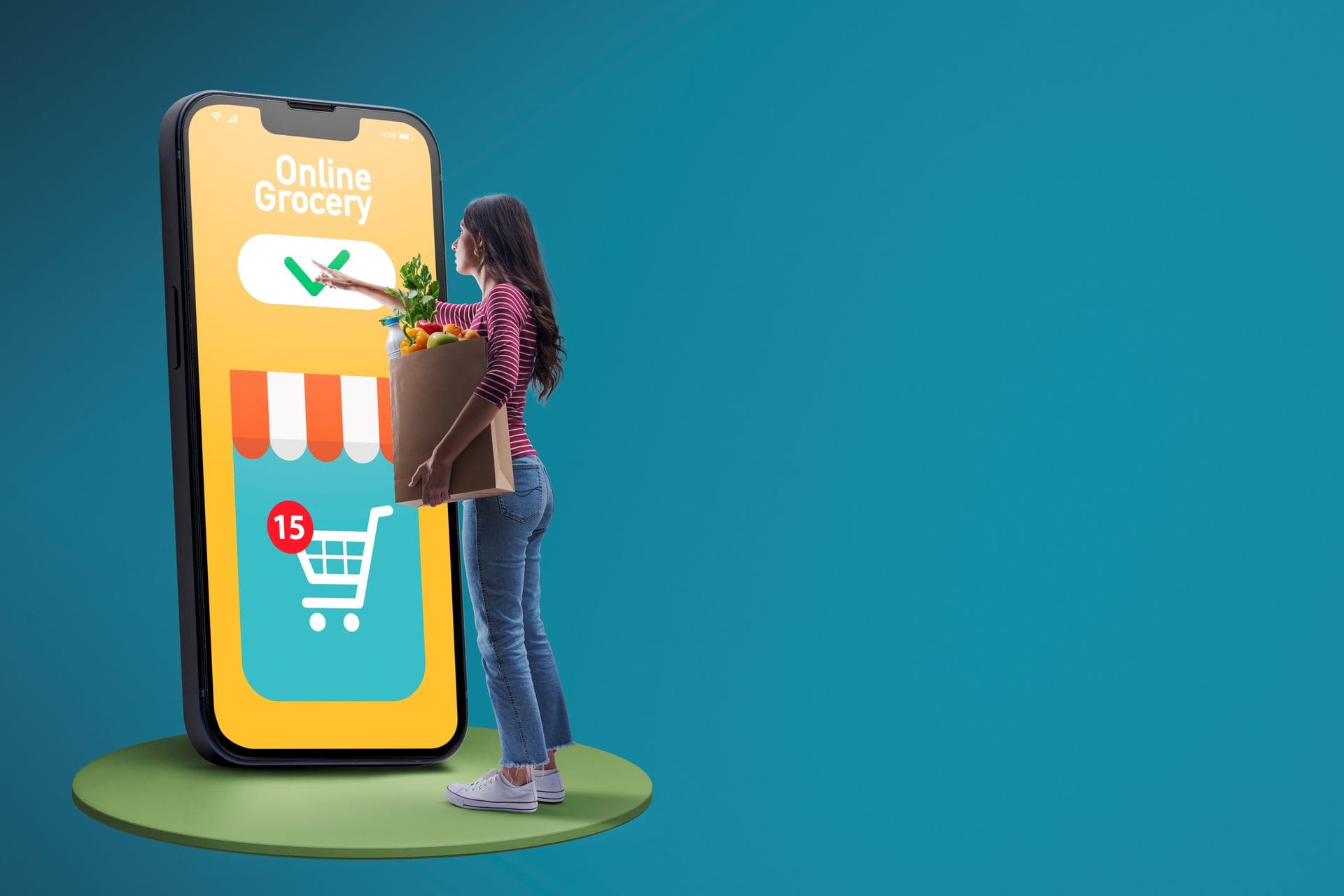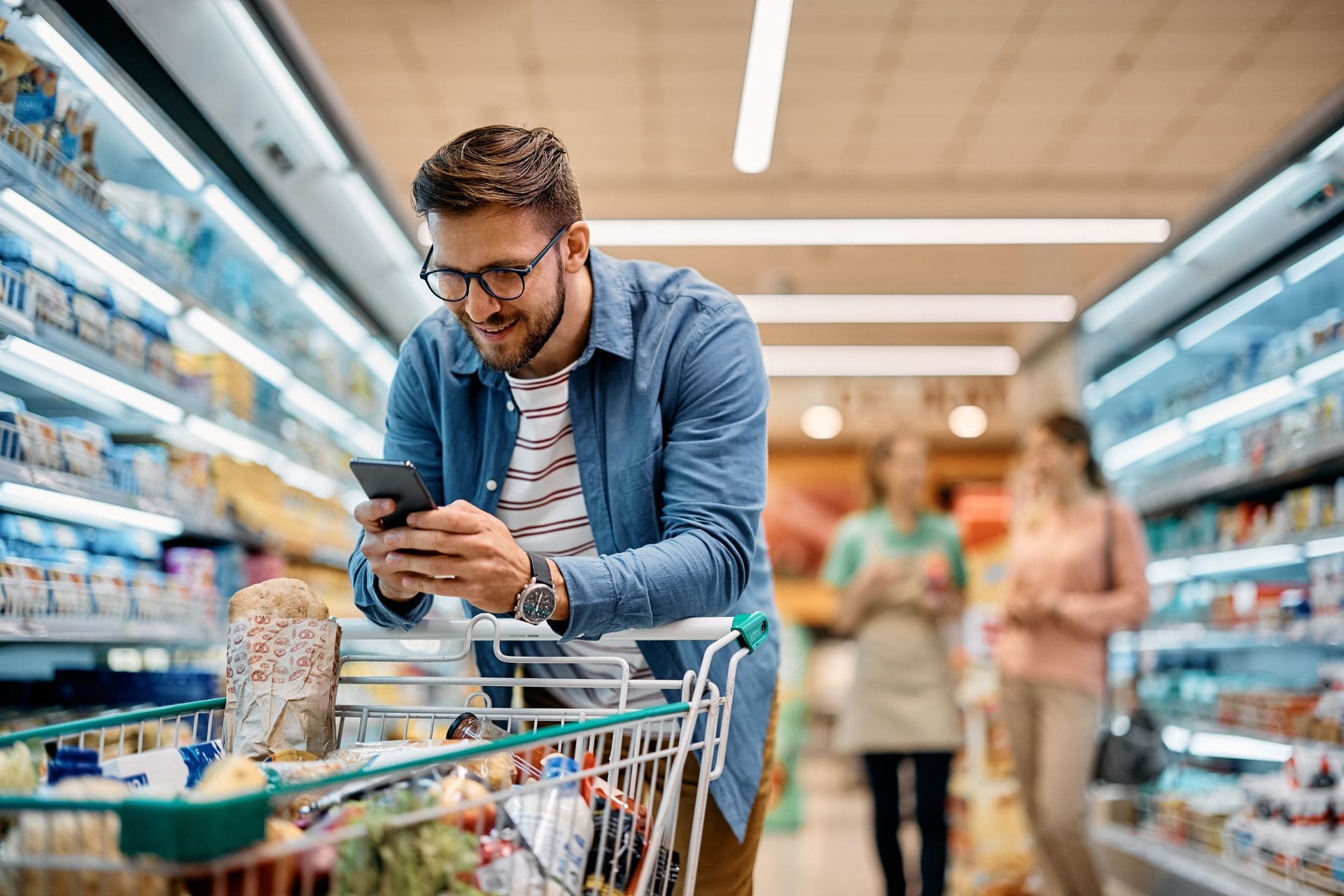The 10 Best Grocery Loyalty Programs: A Deep Dive into Effective Supermarket Strategies
- Published
- 9 min reading

In the vibrant world of marketing, loyalty programs have emerged as a pivotal tool for businesses to retain and reward their customers. Among the various industries that have harnessed the power of loyalty programs, the grocery and supermarket sector stands out for its innovative approaches. These programs not only help customers save money but also foster a sense of community and engagement.
We've identified some crucial insights regarding grocery store loyalty programs in our comprehensive guide. Some of these include:
- 64% of consumers will share their personal info with retailers if they get personalized offers and discounts in return
- 75% of customers are more likely to purchase from a retailer that recognizes them by name and makes recommendations based on purchase history.
- 71% of customers expect companies to provide personalized content
In this article, we will explore the 10 best grocery loyalty programs and delve into the types of strategies that work best for supermarkets and grocery stores.
1. Safeway Just for U
Safeway's Just for U program employs a digital-first approach. Customers receive personalized deals and discounts through the program's app, which adapts to individual purchasing habits over time. This not only simplifies the shopping experience but also ensures customers feel valued.
2. Woolworths Rewards
Woolworths, a major player in the Australian supermarket scene, revamped its loyalty program to create Woolworths Rewards. It offers a straightforward points-based system, but what sets it apart is the emphasis on immediate discounts. This instant gratification ensures customers see the value of their loyalty on every visit.
3. Kroger Plus Card & Kroger Boost
Kroger, one of the largest supermarket chains in the U.S., has built an empire around its Kroger Plus Card loyalty program. The free program offers personalized discounts based on shopping habits, fuel points, and exclusive coupons. By tailoring rewards to individual customers, Kroger fosters a strong connection between the shopper and the brand. They have also recently implemented a paid loyalty program titled Kroger Boost that provides additional benefits like 2x fuel points and free grocery delivery.
4. Club Publix
Publix’s Club Publix loyalty program offers exclusive savings on products and promotions for its loyalty members. They focus on simplicity and immediate discounts to resonate with shoppers who appreciate straightforward rewards.
5. My H-E-B
The Texas-based supermarket chain H-E-B streamlines the shopping process through their reward system, My H-E-B. With digital coupons, pickup and delivery options, and geotargeted search options that find the item you’re looking for directly in the store – they’re always looking for new was to personalize loyalty.
6. Aldi A-List
Even discount supermarkets can capitalize on loyalty programs, as demonstrated by Aldi A-List. While not as complex as some other programs, it provides exclusive discounts to loyal shoppers. The simplicity of this program aligns well with Aldi's minimalist approach and resonates with its customer base.
7. Amazon Fresh
E-commerce giant Amazon disrupted the grocery industry with Amazon Fresh. While not a traditional loyalty program, its integration with Amazon Prime offers benefits like free grocery delivery and access to Amazon Fresh's perks. This synergistic approach capitalizes on Amazon's wide ecosystem.
8. Meijer mPerks
Meijer's mPerks is an example of a loyalty program with charitable integration. Customers earn rewards, including personalized deals, but they can also select local schools or organizations to support through their purchases. This philanthropic element deepens customer loyalty and contributes to the community.
9. Coop Supercard
Coop, a Swiss retail cooperative, boasts one of the most successful loyalty programs in Europe: the Supercard. This program not only rewards purchases but also encourages customers to engage in sustainable practices. Customers are more likely to stick with a brand that aligns with their values.
10. Whole Foods Market Rewards
Amazon's influence extends to its subsidiary, Whole Foods Market, which has implemented its own loyalty program. Prime members receive additional discounts on select items, enticing them to choose Whole Foods over other options. This integration seamlessly integrates digital and brick-and-mortar shopping.

Features You Need for a Successful Supermarket & Grocery Store Loyalty Program
A successful loyalty program for supermarkets and grocery stores requires a thoughtful blend of enticing features that cater to the unique needs and preferences of shoppers. Implementing the right mix of rewards and benefits can create a powerful bond between customers and the brand. Here are some essential features that contribute to the effectiveness of such loyalty programs:
Points and Reward Mechanics
Point and reward mechanics are a staple in the grocery industry. Customers earn points for every purchase, encouraging them to keep coming back to accumulate points over time. These points can then be redeemed for discounts, free products, or other rewards. This simple structure not only incentivizes repeat purchases but also adds an element of gamification, as customers strive to reach higher point thresholds.
Checkout Coupons and Instant Discounts
One of the most effective ways to make customers feel rewarded for their loyalty is by offering checkout coupons or instant discounts. These are immediate benefits that customers receive at the point of purchase, allowing them to save money instantly. Such rewards provide tangible and instant gratification, reinforcing the value of their loyalty and encouraging them to return for future shopping trips.
Personalized Offers and Recommendations
Incorporating data analytics into the loyalty program enables supermarkets to offer personalized discounts and recommendations to their customers. By analyzing past purchase behaviors, retailers can tailor rewards to match individual preferences, making customers feel understood and valued. This level of personalization not only enhances the customer experience but also increases the likelihood of repeat business.
Exclusive Partner Collaborations
Collaborating with other brands and businesses can enhance the appeal of a loyalty program. Supermarkets can team up with local businesses, restaurants, or online retailers to provide exclusive discounts or offers to their loyal customers. This diversifies the rewards portfolio and extends the loyalty program's benefits, creating a broader ecosystem that customers can engage with.
Additionally, integrating rewards with participating gas stations has gained significant traction in grocery loyalty programs. Many supermarket chains offer their customers the opportunity to earn fuel points based on their spending at the grocery store. These points can then be redeemed for discounts on gas purchases, offering customers a practical and valuable benefit that goes beyond the grocery aisles. Double fuel points promotions and gas discounts for loyal shoppers further amplify the attractiveness of this feature. These partnerships can also work in tandem with established fuel loyalty program offerings.
Tiered Membership Levels
Introducing tiered membership levels adds an element of exclusivity and progression to the loyalty program. As customers accumulate points or reach specific spending thresholds, they can unlock higher tiers with enhanced benefits. This approach encourages customers to spend more to achieve better rewards, increasing their engagement with the program.
Digital Integration and Mobile Apps
Incorporating digital technology into loyalty programs is crucial for today's tech-savvy consumers. Offering a mobile app that allows customers to track their points, access personalized deals, and conveniently redeem rewards enhances the overall shopping experience. Digital integration also enables supermarkets to gather valuable data on customer behaviors, enabling continuous refinement of the program.
Charity and Sustainability Initiatives
Modern consumers value companies that align with their values, including sustainability and social responsibility. Loyalty programs can incorporate charitable elements by allowing customers to donate points or rewards to noble causes. Supermarkets can also promote eco-friendly practices by rewarding customers for choosing reusable bags or purchasing sustainable products.
Limited-Time Promotions and Events
Creating a sense of urgency through limited-time promotions and special events can drive excitement and engagement within the loyalty program. Exclusive sales, product launches, or themed events for loyalty members can generate buzz and encourage customers to participate actively.

Wrapping Up
The grocery and supermarket industry has embraced loyalty programs as a strategic tool to foster customer loyalty and engagement. The 10 exemplary programs mentioned above demonstrate that successful strategies revolve around personalization, digital integration, immediate rewards, cross-brand synergy, philanthropy, diverse partnerships, and simplicity.
The success of these programs highlights key strategies that work best for grocery and supermarket loyalty programs:
Key Strategies for Effective Grocery Loyalty Programs
- Personalization: Understanding individual shopping habits allows for tailored rewards, creating a deeper connection between customers and the brand.
- Digital Integration: In an increasingly digital world, loyalty programs that offer app-based interfaces and digital coupons streamline the shopping experience.
- Immediate Rewards: Programs that offer instant discounts or rewards during the same shopping trip provide immediate gratification, reinforcing the value of loyalty.
- Cross-Brand Integration: Loyalty programs that span multiple brands within the same corporate family encourage cross-shopping, increasing customer engagement and retention.
- Philanthropy and Values Alignment: Integrating social or environmental causes resonate with customers who seek alignment between their values and their purchasing decisions.
- Diverse Partnerships: Collaboration with other companies in various industries extends the loyalty program's benefits beyond the grocery store, enhancing the customer experience.
- Simplicity: While complexity can be appealing, simple and straightforward programs often resonate more with customers, particularly those who value convenience.
As the retail landscape continues to evolve, these grocery loyalty program approaches are likely to remain at the forefront of supermarket success stories, ultimately benefiting both customers and businesses.
How Comarch Can Help
We’ve worked with some of the world’s most influential retail brands to help build customer loyalty that lasts. Our loyalty management software has everything you need to build, run, and manage your grocery store loyalty program. With AI-powered tools and data-driven features, we’re able to build hyper-personalized strategies for your customers. Visit our page today and discover how you can spice up your customer loyalty solutions.



